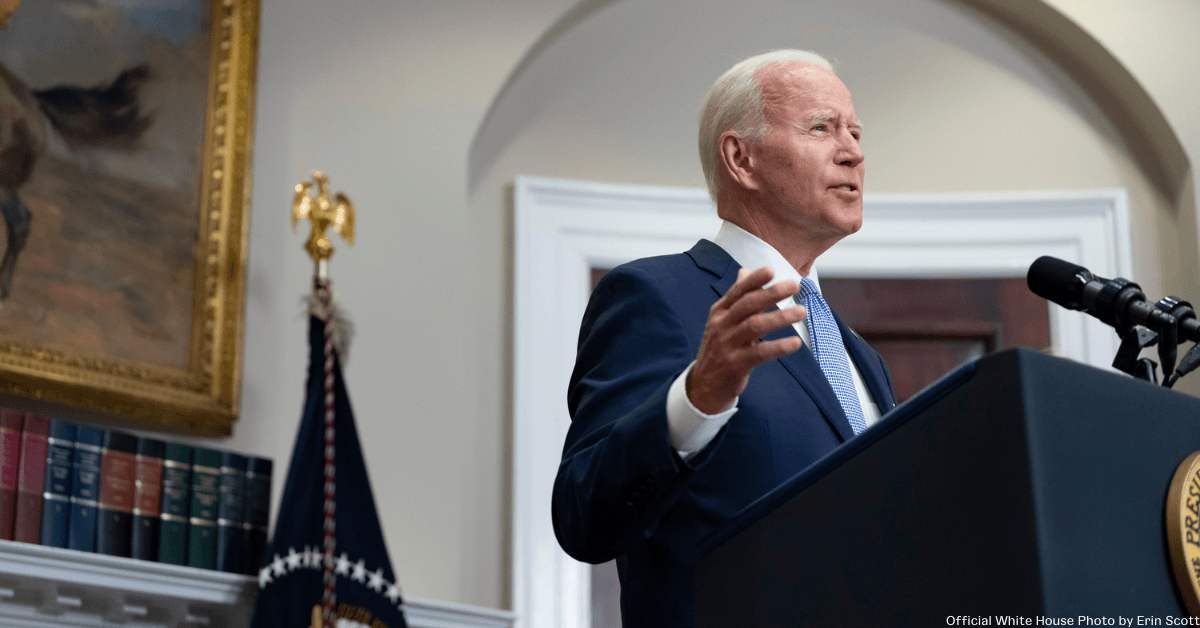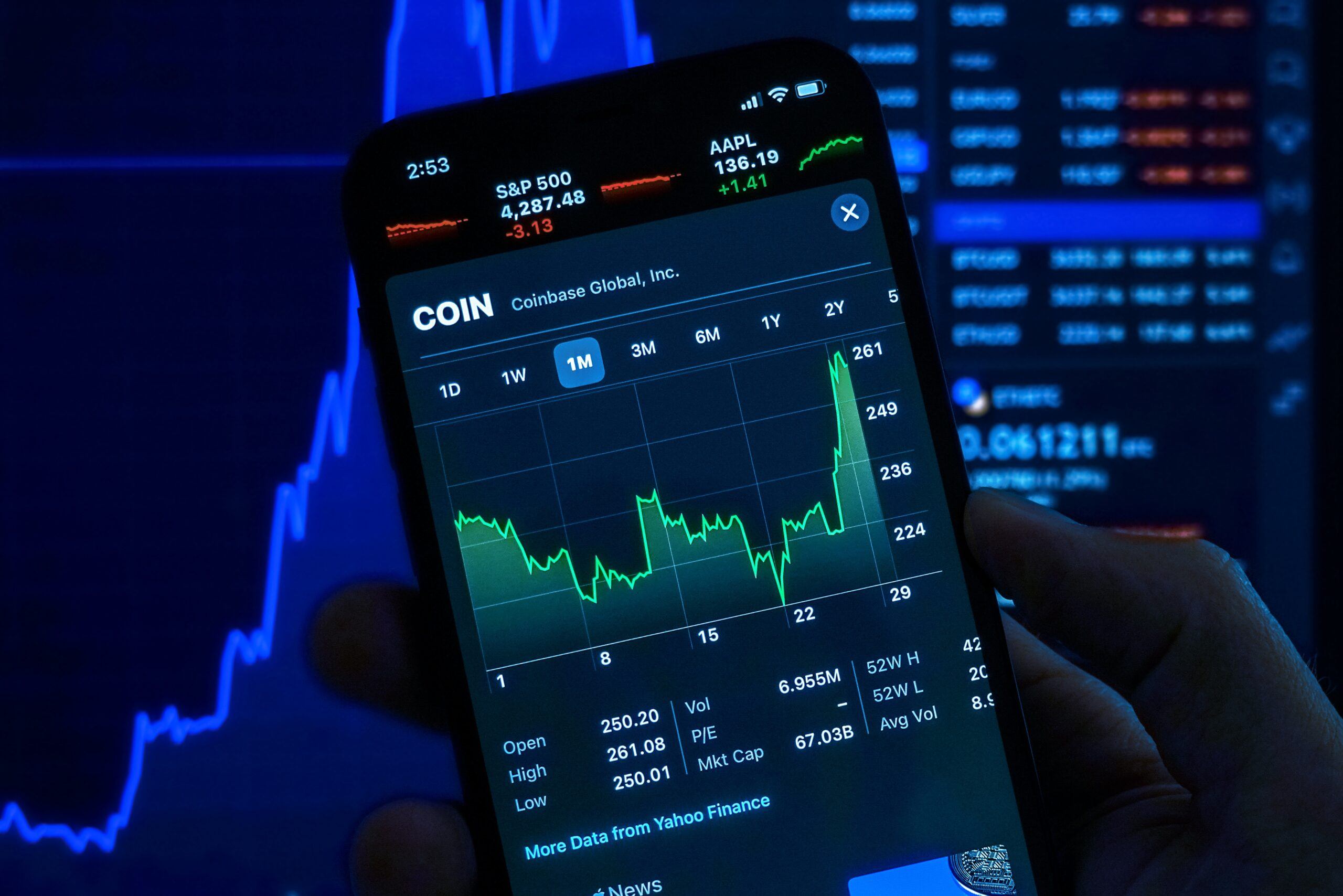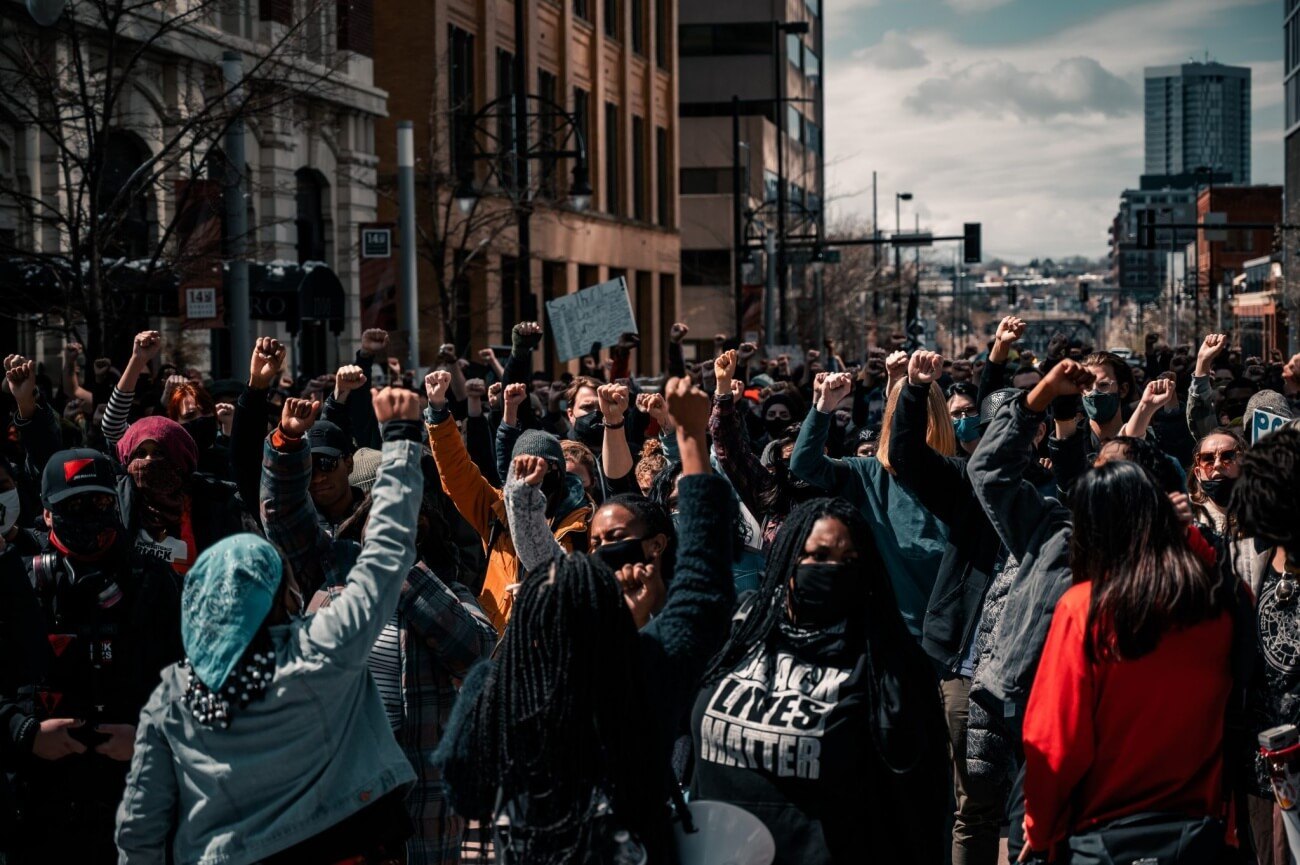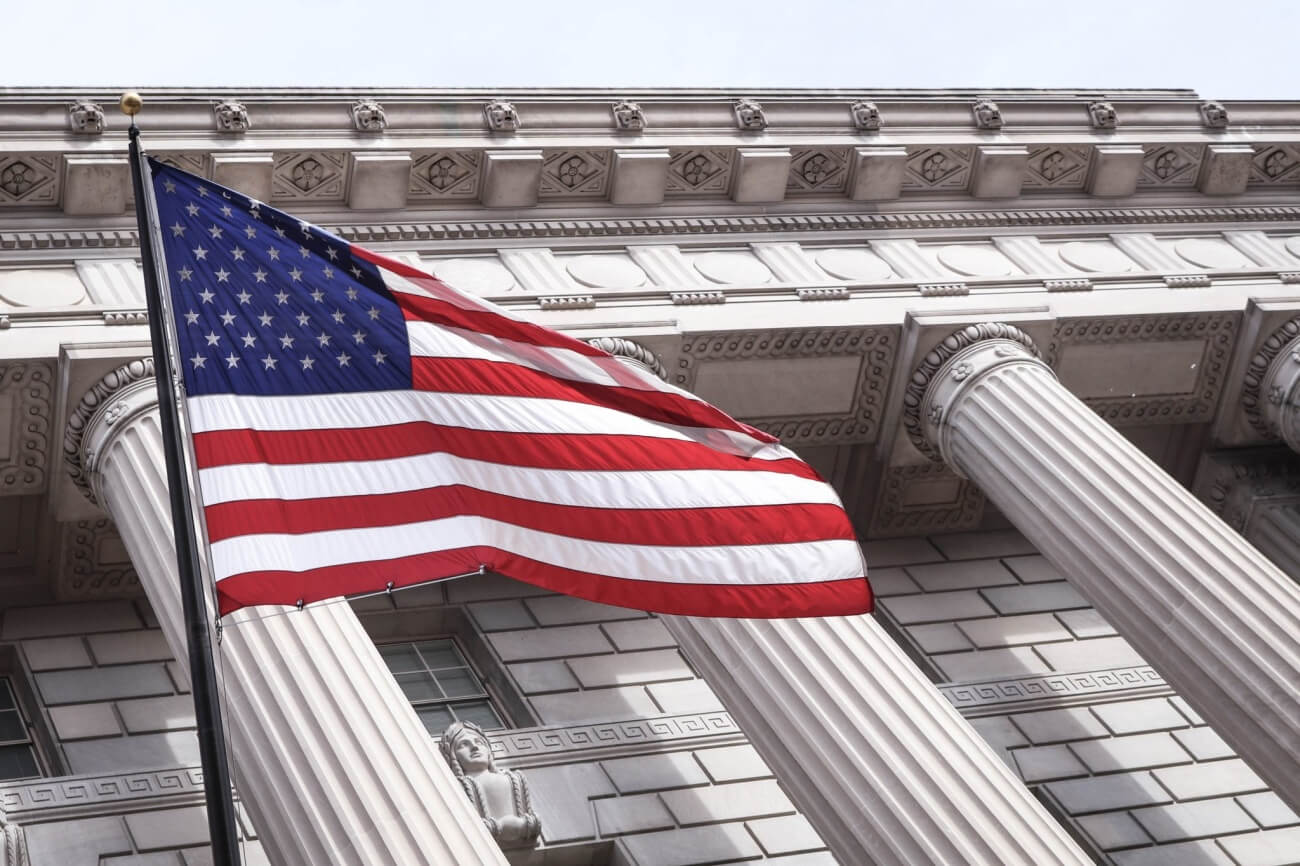The world is seemingly coming to a halt in the physical sense as the coronavirus (COVID-19) continues to build momentum globally as new cases are discovered.
Schools are shutting down, moving to classes online. Large tech conferences are postponing or canceling their planned activities entirely (take SXSW’s announcement last week). And tech giants like Twitter and Amazon have completely shuttered their company offices, requesting that employees work from home.
The economic impact of this pandemic has yet to be fully realized as the weeks draw on.
For Black tech founders who operate extensively within the general public or whose business dealings require extensive travel to meet with investors or presentations at major industry conferences, the long-term effects of COVID-19 have yet to be realized. Their proactivity in managing their workforces breaks down to using common sense as well as keeping a keen eye on how the future of work will be shaped by building culturally-responsive remote work cultures.
Riana Lynn, CEO of Journey Foods, a machine learning-powered software platform for food companies, says that the current climate has helped her filter down what opportunities are worth placing bets on. Her team is currently distributed across Chicago, New York, Austin, and Los Angeles.
“It proves why at the forefront of the pandemic or anything that can change—travel bans, political advisories, cash issues, etc—building around a distributed team in the 2020s or [having] a backup plan is one that all startup founders should consider,” Lynn said.
Closing headquarters was not an option for Jasmine Crowe, CEO of B-Corp company Goodr, a tech-enabled food waste management company. Because their team is small, and cash resources are tight, employees are not slated to be working from home any time soon.
“No matter what’s happening, we’ve got to get business done. If things go down, if revenue projections aren’t met, I think with what’s going on with corona, it will be understandable and other businesses are down as well.”
Internal policies at Goodr are standard precautions that mirror what is being advised by the CDC and businesses emphasizing healthy etiquette: thorough hand-washing, no shaking hands with others, covering coughs and sneezes, and hand sanitizers throughout the office.
“We’re dealing with food that doesn’t get in front of people. It’s already packaged goods. What we are going to see, is that the need [for food] is going to get heightened,” said Crowe, giving a nod to the food service workers who will miss out on income from the cancellations of conferences and banquets and may rely on food pantries or additional support to cover basic needs.
Her thinking is in the right place. For example, at SXSW organizers set up ilostmygig.com to help track income lost at the hands of the SXSW conference cancellation. As of Sunday evening, the site reports, $1,130,547 in sourced income from over 200 creatives and service workers who would have been paid to work the festival is now lost.
Another facet of the economic dip caused by the coronavirus in the U.S. is the heavy reliance on gig-based apps and solutions that have disrupted the market and are anticipated to be on the decline as more people stay home and avoid non-essential public interaction.
Postmates recently announced the introduction of its “non-contact deliveries” option for users to have their food items dropped-off in a specific location in an effort to reduce the potential spread of COVID-19.
But for high-touch app-based companies that facilitate service transactions on-demand, non-contact options aren’t on the menu.
For Courtney and Tye Caldwell, founders of ShearShare, a barbershop and salon space rental service helping freelance stylists book space for clients, they’ve been actively reaching out to owners to reduce fears and help stylists get smart.
The beauty industry is heavily regulated with its own variants of sanitization standards and requirements, explained Courtney Caldwell.
They’re using email and SMS messaging to reach stylists with tips on staying safe amid COVID-19, carefully sanitizing equipment with extra scrutiny, and encouraging clients to reschedule if they’re not feeling well.
Below is a recent communication that was distributed to salon owners across the 500+ cities the ShearShare app covers.
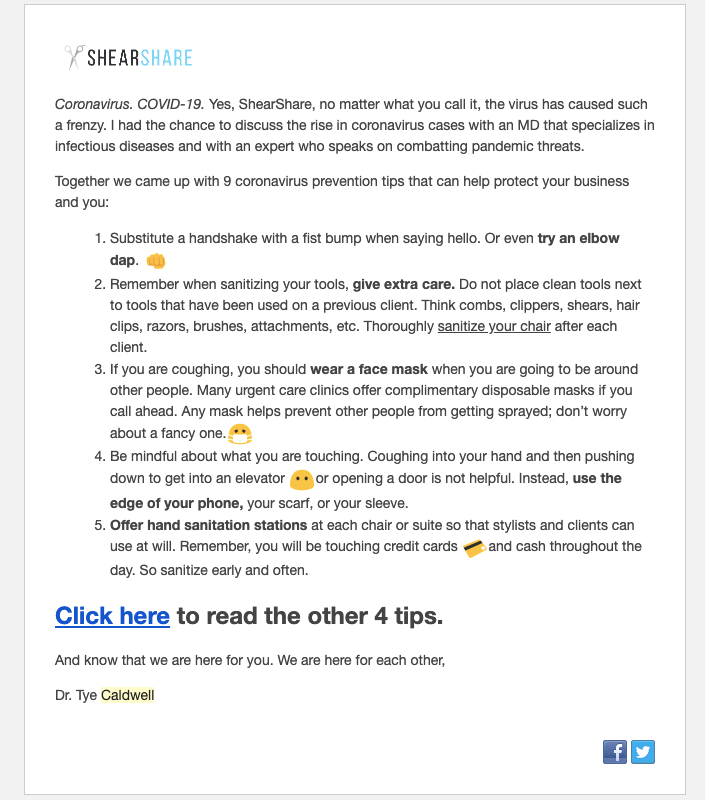
“We’ve taken the stance to be proactive. Plus, in our community, there’s disinfectant for a reason—that [sanitization] has been happening before corona,” explained Tye Caldwell, who holds a doctorate degree in professional barbering and styling.
The ShearShare team has also been leaning into their team of advisors and investors with extensive knowledge of pandemics to help prepare for any business challenges they may face in light of their continued 35% growth month over month.
On a private webinar call last Wednesday, ShearShare investor Steve Case (founder of AOL) hosted a conversation with Ron Klain, executive vice president and General Counsel at Revolution.
Klain served in the White House and lead the coordination of the president’s “whole of government” response to the Ebola crisis from October 2014 to February 2015. His advice to the ShearShare team and others on the call included the harsh reality that the fear of the virus will drive more business challenges compared to the actual effects of it. Hospitality and travel reductions, Klain said, are certain to take a hit which should pre-empt communication around payment policies with vendors and potential insurance policies for any business interruption.
Like much of the advice coming out of the investment community in the wake of COVID-19, much of it boils down to increasing education and being as preventative as possible.
“This is a very resilient industry. At the end of the day, it’s trust from the consumers. We don’t anticipate a dip [in business]. We know that we’re doing everything we can to educate them,” said Tye Caldwell.




